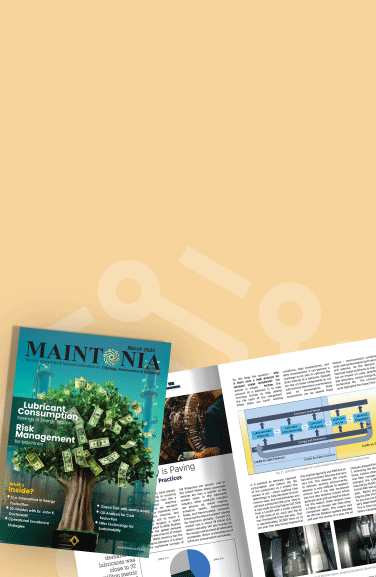30 minutes with Mr. Hari Ramani
1. In your experience, what are the key reliability challenges facing both renewable and non-renewable energy sectors today, especially in high-stakes operational environments?
As policy and investment trend toward net zero, regulators and investors alike are waking up to a stark reality: despite significant progress in renewables, the energy transition is still expected to cost a further $110 trillion over the next 30 years, with investment stalling. Refiners and petrochemical firms are the lifeblood of civilizations, and overall fossil fuel usage went up by 1% last year. Yet their existence is frozen in time, as many of the facilities that power our world are nearly 50 years old. The infrastructure of heavy industry cannot be erased; it must be transformed and made more efficient for the remainder of its lifespan. The transition to renewable energy still requires an energy mix of both renewable and nonrenewable energy for decades to come, so this is a challenge we need to rise to.
2. How can AI and advanced analytics reshape risk assessment frameworks in industries like oil & gas, wind, and solar?
Artificial intelligence can deliver significant financial and environmental improvements to benefit everyone on the planet. Previously, energy firms had been burned through ineffective AI investments that were designed for the internet and not for the real world. AI platforms need to evolve into multi-foundation systems, not just language models but also time series, physics, and engineering models, delivering explainable AI that can be trusted in real-world applications. It provides real-time intelligence that improves margins without sending sensitive operational data off-site.
3. What role does predictive maintenance play in reducing unplanned downtime in critical energy infrastructure, and how do you see it evolving with platforms like Orbital
Predictive maintenance helps critical infrastructure, including refineries and grids, stay ahead of issues by reducing downtime, extending equipment life, and cutting energy use. It’s good for reliability and great for the bottom line. One of the biggest challenges is data access. Energy sector operators can generate up to a billion data points a year, yet most platforms only use a small slice of it—around 8% on average. Orbital, in contrast, allows operators for the first time to use 100% of their data. With that kind of visibility, a new level is reached for not only predictive maintenance but also real-time optimisation.
4. Could you share an example where digital interventions significantly improved asset reliability or mitigated operational risks in the energy sector?
There are many examples from industry-leading operators from both Oil and Gas as well as Renewables that have pioneered digital solutions in predictive maintenance, inventory optimisation, supply chain optimisation, etc, delivering millions of dollars in value. This sector is leveraging traditional AI to identify anomalies and using a plethora of tools to try and explain those anomalies. Every major failure predicted and averted is adding to the bottomline of both the operator and the economy. I read recently that numerous Indian refining majors have deployed predictive maintenance across their sites to detect failures in advance and plan mitigative strategies to maintain production—a fantastic example of how innovation is being scaled to deliver value.
5. As we shift toward a decarbonized energy mix, how should companies balance innovation with the need for dependable, risk-managed operations?
There is a comforting fiction that we can simply swap out the old for the new. But the scale of the transition is immense. Existing assets need to be run more efficiently, and new assets need to learn all those lessons from day 0—and the beauty of this industry is that there is a lot of transferability from one to the other. I am afraid this isn't an “OR” question and is an “AND” question -we simply need to do both.
6. You’ve led the global expansion of Orbital at Applied Computing—what differentiates it from other AI platforms in terms of tangible impact on operational performance?
At Applied Computing, we believe that if you want AI to work in the physical world, it has to be built for it. Orbital combines domain-specific foundation models across language, physics, chemical engineering, and time series to deliver accurate, explainable, and on-edge intelligence. Unlike traditional AI tools that rely on cloud infrastructure and narrow models, it is delivering a 75% cost saving versus cloud platforms, with a sub-10-week payback period.
7. What are some common pitfalls companies encounter when scaling AI-driven initiatives across global operations, and how can they be avoided?
One of the most common pitfalls is overpromising and underdelivering. A lot of AI solutions in industrial settings have failed to meet expectations; either the tech wasn’t built for the real world, or it operated like a black box—making decisions no one could fully explain. That lack of trust is a dealbreaker, especially in high-stakes industries. To scale globally, AI needs to be both effective and explainable. When people understand why the system is making a recommendation, they’re far more likely to use it. Gaining that trust is the foundation for real adoption.
8. What advice would you give to leaders trying to transition from proof-of-concept AI projects to enterprise-wide adoption with real ROI?
Too often, proof-of-concept is treated as a checkbox to prove that something works technically. But that’s not enough. You also need to prove the business case. A successful proof of concept should show not just functionality but impact, whether that’s margin improvement, cost savings, or emissions reduction. If there’s no tangible outcome, there’s no reason to scale. Leaders should look for early indicators of ROI, speed to value, and relevance across sites. That’s what turns a tech demo into a real growth lever.


